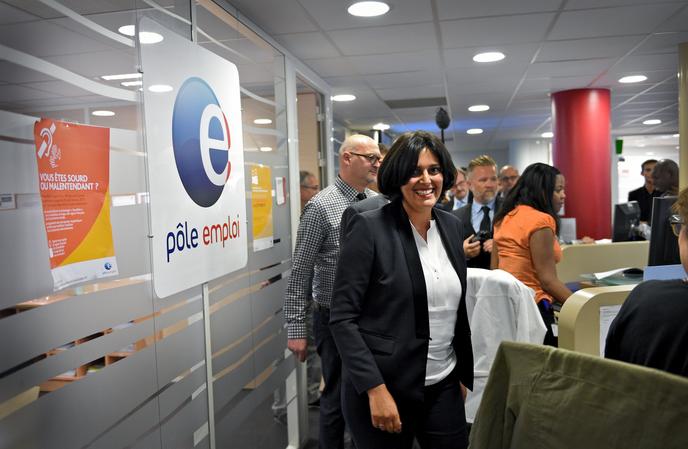
The appointment by President Hollande and Prime Minister Manuel Valls of Myriam El-Khomri as Minister of Labor came as a surprise. The position became vacant when the former minister left to become mayor of Dijon, a medium sized French city. The presumed good candidates for the position were all men.
With this appointment nine of the sixteen senior ministers are women, a precedent in French politics certainly.
Myriam El-Khomri, who had been in the Paris council and worked closely with Anne Hidalgo, the current mayor of Paris, made her way working on urban policies. She was elected in the vibrant XVIII district that regroups Montmartre, the tourist attraction, and la Goutte D’Or, where over 30% of the population is of West African and North African descent. She was praised for her sense of dialogue, enabling urban and social improvements in this district. She carried this expertise to her next employment as State Secretary to the Minister for Urban Affairs, which she held until now. She clearly opposed ghettoisation and supported programs to promote social diversity.
Why was she appointed in this rather liberal socialist government? Surely, sending an image of progressive young government is part of the strategy as this government is contested on its left. Then, she is going to be in charge of preparing the next social roundtable between the unions and an unfettered business/corporation leadership. With the strong hand of Manuel Valls on his ministers, she will need a lot of diplomacy if she wants to remain true to her belief that employment policies have to be approached from fairer urban public politics angle.
In addition, Manuel Valls and President Hollande have already expressed their desire to “simplify” the labor code, and that is what scares the unions. France has rather good social and labor protection compared to many other European countries that have seen their labor regulations crumbling. What will be her role in these contradictory discourses? On one hand, drastically cutting public spending and on the other one, pretending that public services and social programs will be maintained, even improved, as neoliberal policies in France like anywhere else generate increased inequalities.
Lastly and remarkably, since the Prime Minister Manuel Valls, who was born Spanish, took office, he has promoted two women who were born in Morocco. Najat Vallaud-Belkacem left the Ministry of Gender Equality to become the Minister of National Education, Higher Education and Research and now Myriam El-Khomri. He declared that these two women represent diversity, the reality and the strength of France. Although this appointment is encouraging, it is definitely not enough to strongly establish that diversity is the reality and strength of France.
Wouldn’t it be a good move to change asylum policies, as 75% of asylum demands are denied annually?
(Photo Credit: Alain Guilhot / Le Monde)